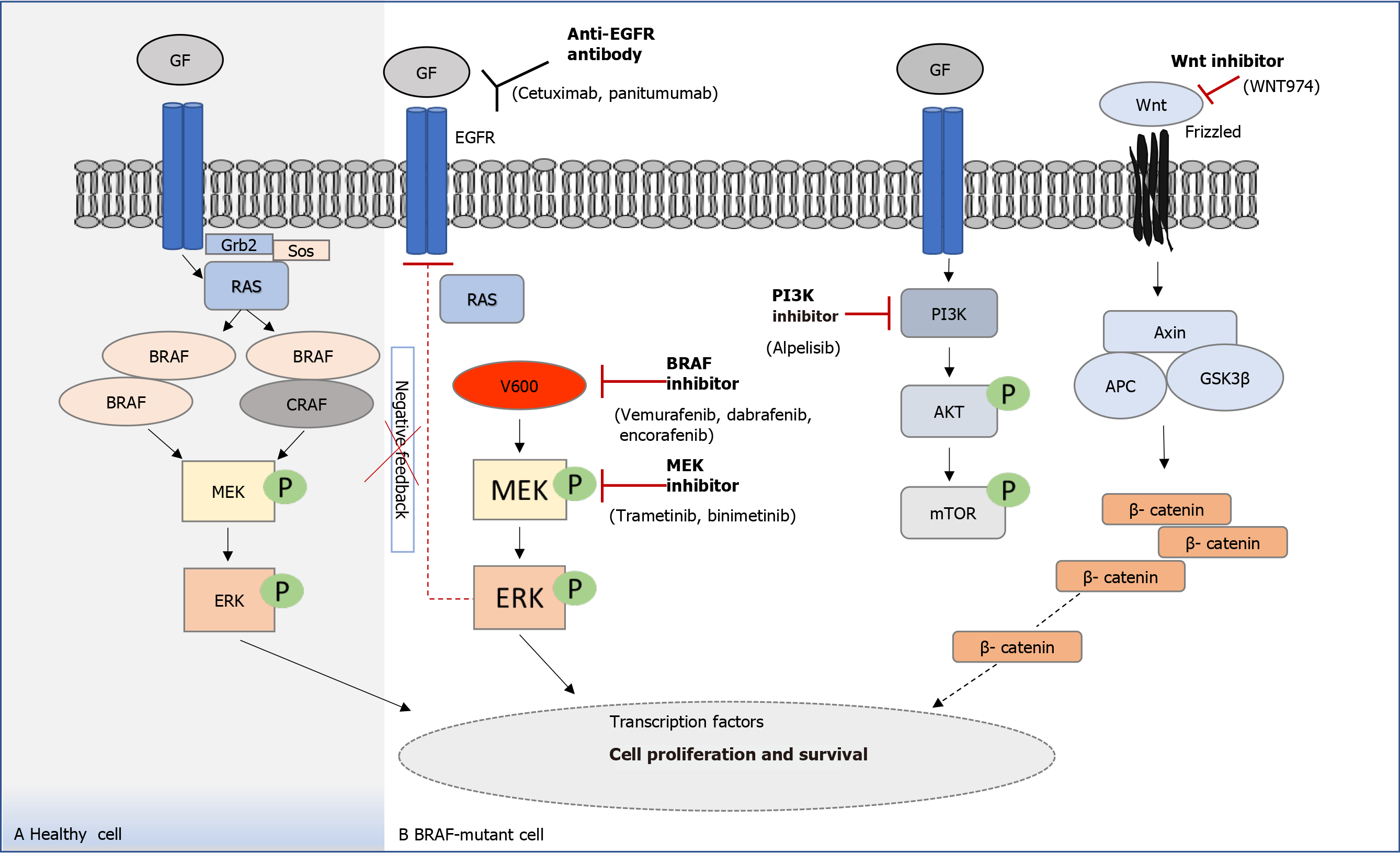Copyright
©The Author(s) 2020.
World J Gastrointest Oncol. Oct 15, 2020; 12(10): 1080-1090
Published online Oct 15, 2020. doi: 10.4251/wjgo.v12.i10.1080
Published online Oct 15, 2020. doi: 10.4251/wjgo.v12.i10.1080
Figure 1 Activation of the mitogen-activated protein kinase (RAS-RAF-mitogen-activated protein kinase kinase-extracellular signal-regulated kinase) pathway due to BRAF V600 mutations and current targeted therapy options for metastatic colorectal cancer patients bearing these mutations.
A: In healthy cells, a growth factor binds to and activates receptor tyrosine kinases on the cell membrane, inducing their dimerization. Then, the Grb2/Sos complex is recruited to the membrane to initiate RAS activation. Activated RAS triggers dimerization (i.e., BRAF-BRAF or BRAF-CRAF) and activation of RAF proteins. RAF proteins activate the mitogen-activated protein kinase kinase-extracellular signal-regulated kinase (MEK-ERK) pathway to promote cell proliferation and survival; and B: In colorectal cancer cells bearing a BRAF V600 mutation, mutant BRAF proteins can signal as a monomer and potently activate the MEK-ERK pathway in a RAS independent manner, which accelerates tumor formation and progression. Drugs targeting BRAF (BRAF inhibitor) and MEK (MEK inhibitor) are currently used in the treatment of BRAF-mutant metastatic colorectal cancer (mCRC). The use of BRAF inhibitors suppresses the negative feedback from ERK to the epidermal growth factor receptor, resulting in the mitogen-activated protein kinase reactivation and the treatment resistance. Triplet inhibition of epidermal growth factor receptor, BRAF, and MEK is an emerging therapeutic approach for patients with BRAF-mutant mCRC. Crosstalk between the mitogen-activated protein kinase pathway and the PI3K and Wnt pathways can play a role in the survival of BRAF-mutant CRC cells and their resistance to BRAF inhibition. The PI3K and Wnt inhibitors may be part of the future treatment of BRAF-mutant mCRC.
- Citation: Kanat O, Ertas H, Caner B. Contemporary treatment approaches for metastatic colorectal cancer driven by BRAF V600 mutations. World J Gastrointest Oncol 2020; 12(10): 1080-1090
- URL: https://www.wjgnet.com/1948-5204/full/v12/i10/1080.htm
- DOI: https://dx.doi.org/10.4251/wjgo.v12.i10.1080









